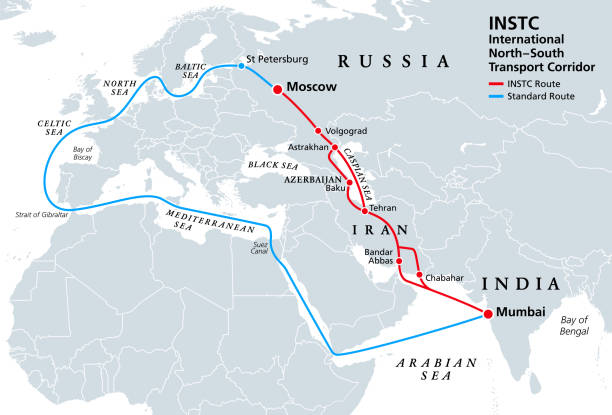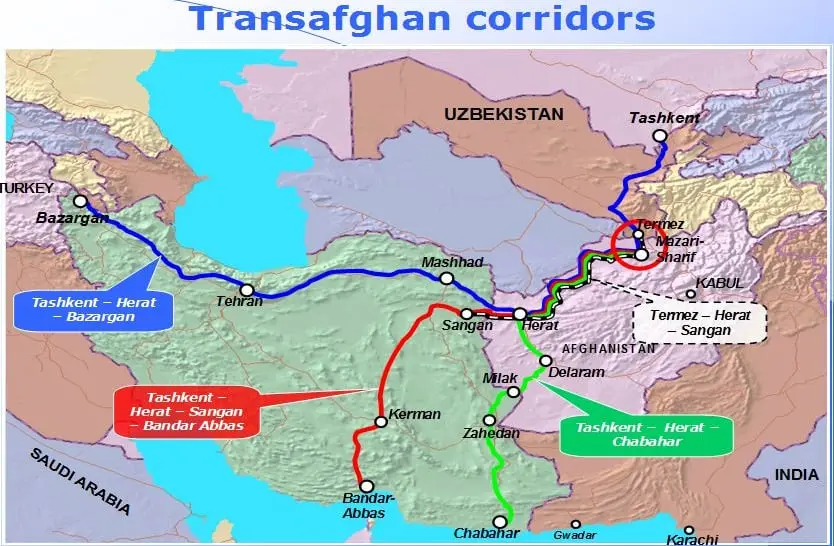Russia is intensifying efforts to expand its transport routes through Afghanistan to gain access to South Asia amid Western sanctions and escalating tensions in the Middle East. According to Nargiza Umarova’s article in the Eurasia Daily Monitor, Moscow’s strategy focuses on extending the International North-South Transport Corridor (INSTC) to Afghanistan and Pakistan, offering alternative trade routes as European connections falter.

The INSTC, a major transport initiative, currently operates via three main routes: through Azerbaijan (western), across the Caspian Sea (trans-Caspian), and via Kazakhstan and Turkmenistan (eastern). Russia envisions a fourth branch extending through Afghanistan to Pakistan, potentially bypassing unstable regions such as the Strait of Hormuz and the Persian Gulf.
The strategic importance of Afghanistan was underscored during Russian Security Secretary Sergei Shoigu’s meeting with Afghan Deputy Prime Minister Abdul Ghani Baradar on November 25, 2024. The discussions centered on constructing the Trans-Afghan Railway to Pakistan, a project seen as integral to the INSTC.
Afghanistan’s Taliban-led government has revived previous transport projects while introducing new initiatives, such as the Torghundi-Herat-Kandahar-Spin Boldak railway connecting Turkmenistan to Pakistani ports. These projects complement the Kabul Corridor (Termez-Mazar-i-Sharif-Kabul-Peshawar railway) but may also trigger competition. However, Umarova suggests that such rivalry could lower transportation costs and stimulate further investments in trans-Afghan logistics.

The push to connect Afghanistan’s transit network to the INSTC aligns with broader geopolitical shifts. The corridor’s southern expansion would mitigate risks posed by instability in the Middle East and offer faster trade routes to South Asia. Moscow is also exploring alternate routes, including container trains through Kazakhstan, Turkmenistan, and Iran, set to launch by March 2025.
Central Asian countries like Uzbekistan and Turkmenistan, already engaged in transport initiatives through Afghanistan, could gain significant leverage over Russia by controlling key transit routes. Uzbekistan’s proposed multimodal corridor, connecting Belarus to ports in Pakistan, exemplifies the region’s growing role in trade connectivity.
Despite the potential for cooperation, Umarova highlights the possibility of conflicting interests between Russia and Central Asian states, particularly as they compete for transit revenues. “As a precaution, it is important for the five republics in Central Asia to achieve synergy in the implementation of transport routes passing through Afghanistan and to establish mutually beneficial cooperation in this issue,” she concludes.
Comments (0)